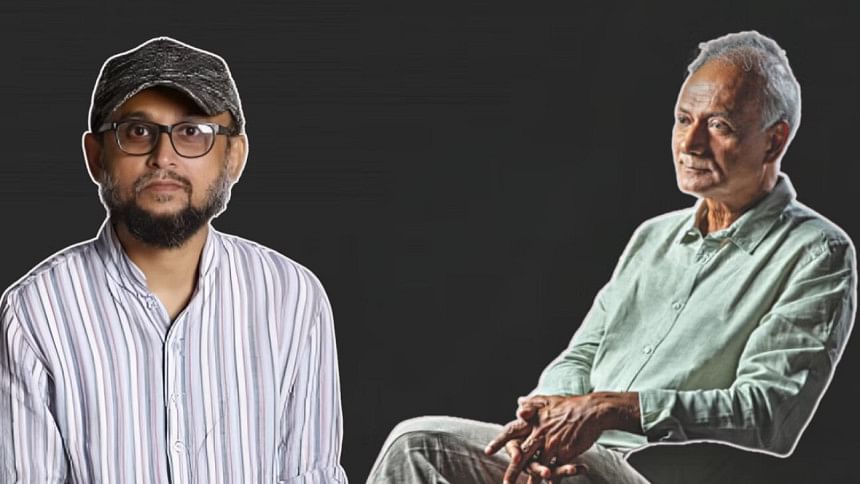Why wash dirty linen in public?

Noted theatre personality Syed Jamil Ahmed caught everyone off guard when he announced his resignation as director general of Bangladesh Shilpakala Academy at a public event on Friday evening.
As he took the podium to speak at the closing ceremony of the Munier Chowdhury First National Theatre Festival, he handed in his resignation to Mohammad Wares Hossain, secretary of Shilpakala Academy, in front of a packed audience, citing "bureaucratic challenges" and "restrictions on artistic expression."
He alleged financial mismanagement within the academy, claiming that the administration treated allocated funds as "personal assets."
He said, "My request for a Tk 165 crore budget was not fully met. If we [Shilpakala authorities] must repeatedly call upon the administration and still fail to establish a collaborative and peaceful working environment due to bureaucratic obstacles, I don't see how I can effectively fulfil my role here."
His dramatic resignation took the audience by such surprise that they fell absolutely quiet, ultimately overshadowing the actual event itself. After finishing his speech, Syed Jamil also spoke with a crowd of theatre activists outside the auditorium and gave some conditions for withdrawing his resignation. Many believe Syed Jamil could have submitted his resignation following due process without the theatrics.
But what came next, surprisingly and unexpectedly, was the Facebook post of Cultural Affairs Adviser Mostofa Sarwar Farooki. The adviser began his post with praises of Syed Jamil's work before raising questions over his management abilities in effectively running an institution within a bureaucratic system.
Although the adviser mentioned that he did not want to comment on the resignation out of respect, he eventually did not refrain from doing so, writing that many things Syed Jamil said weren't entirely accurate, some were outright false, and some seemed to come from frustration due to not being able to manage certain situations. Farooki also hinted that he would write more on the matter when he had time.
Should an adviser go public and make such remarks on social media when the issue is so sensitive?
It is natural to encounter problems while working in the government, and any grievances should be sorted out through discussions. What Syed Jamil did was also a deviation from this norm. He could have chosen a more appropriate and formal channel to disclose this information. Announcing it to an audience gathered for a cultural event was neither the best option nor a respectful approach. But being an important part of the government, how morally acceptable is it to make such a public post on social media without dealing with it sensitively?
Since Farooki wrote that he considered Syed Jamil the most talented director in Bangladesh's theatre, he could have discussed the matter with him privately. Instead, he took to social media, making the matter nothing but more embarrassing. Is this how cabinet members should handle sensitive issues?
Both Syed Jamil Ahmed and Mostofa Sarwar Farooki are respected cultural figures in Bangladesh, with numerous followers and admirers across the country. Their work and action set an example for many in society. Both could have approached the situation with greater discretion and professionalism. Publicly airing grievances only escalates tensions and distracts people from the core issues. Constructive dialogue and mutual respect are essential for resolving conflicts and fostering a collaborative environment within any institution.

 For all latest news, follow The Daily Star's Google News channel.
For all latest news, follow The Daily Star's Google News channel. 










Comments